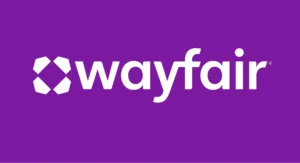Non-Bank Loans: Exploring Alternative Financing Options
By TOI Desk
May 25, 2023
Update on : May 25, 2023

When individuals or businesses require financial assistance, traditional banks may not always be the most accessible or suitable option. In such cases, non-bank loans can provide a viable alternative. Non-bank loans refer to financing solutions offered by entities other than traditional banks, such as online lenders, peer-to-peer platforms, and credit unions. These lending options from non-traditional institutions cater to borrowers outside traditional bank criteria. They offer flexibility, faster approval, and personalised solutions. This post will go into private lending and look at its benefits, varieties, and factors.
Advantages of Non-Bank Loans
2.1 Accessibility: These loans are often more accessible than traditional bank loans. They cater to a wider range of borrowers, including those with less-than-perfect credit histories or limited collateral. Non-bank lenders often consider alternative factors when evaluating loan applications, focusing on the borrower’s financial health and potential.
2.2 Speed and Efficiency: Diverse funding solutions are known for faster approval and streamlined application processes. Online lenders, for example, leverage technology to expedite loan applications and disburse funds promptly. This makes this funding an attractive option for individuals and businesses in urgent need of capital.
2.3 Customised Solutions: Non-bank lenders are often more flexible and willing to accommodate the unique needs of borrowers. They offer a variety of loan products, allowing borrowers to choose the terms, repayment schedules, and loan amounts that align with their financial goals. This personalised approach can be particularly advantageous for small businesses and individuals with specific financing requirements.
Considerations for Non-Bank Loans
3.1 Interest Rates and Fees: While these non-traditional types of financing can provide accessibility and flexibility, it is essential to carefully review the interest rates and fees associated with these loans. As with any borrowing decision, borrowers should weigh the entire loan cost over its length and compare rates from several lenders.
3.2 Reputation and Credibility: Before choosing a non-bank lender, it is important to research and assess their reputation and credibility. Look for reviews, testimonials, and any relevant certifications or accreditations. Making sure you are working with a respectable and trustworthy lender can be achieved by performing due diligence.
3.3 Transparency and Terms: These loans may have varying terms and conditions, so reviewing the loan agreement is crucial. Pay close attention to factors such as repayment schedules, prepayment penalties, late payment fees, and hidden costs. You can more clearly grasp your responsibilities as a borrower and avoid unpleasant surprises by signing an open and transparent loan agreement.
3.4 Security and Privacy: When working with non-bank lenders, it is crucial to put the security and privacy of your personal and financial information first. Ensure that the lender has robust security measures to protect your data. Look for indicators such as SSL encryption on their website and a privacy policy that outlines how they handle and safeguard customer information.
3.5 Regulatory Compliance: While non-bank lenders offer alternative financing options, verifying compliance with relevant regulations and laws is important. Check if the lender is licensed or registered with the appropriate financial authorities or regulatory bodies. This guarantees that they operate within the law and gives you options for any conflicts or problems.
Conclusion
As an alternative to traditional bank financing, private lending offers borrowers valuable advantages, including accessibility, speed, and customised solutions. Exploring non-bank lending options can give you several options, whether you’re an individual looking for a personal loan or a small business in need of financing. When selecting non-bank loans, consider the benefits, lending options, and related factors carefully. Conduct thorough research, compare lenders, and review terms: Prioritise transparency, security, and regulatory compliance for a positive borrowing experience.
Read More: Non-Bank Loans: Exploring Alternative Financing Options















